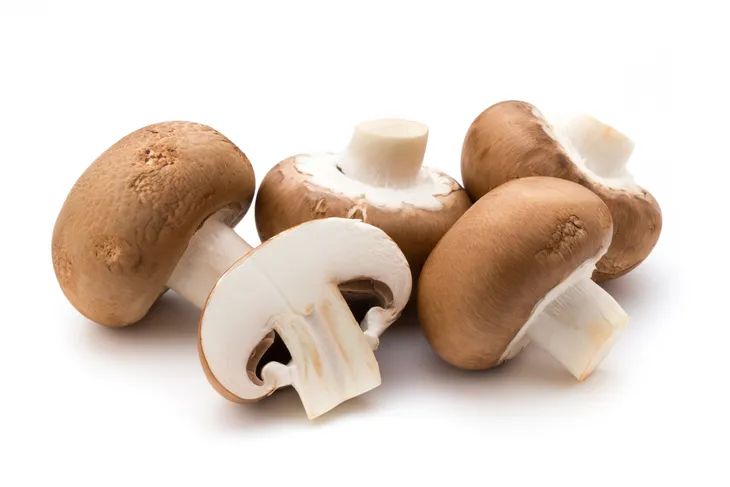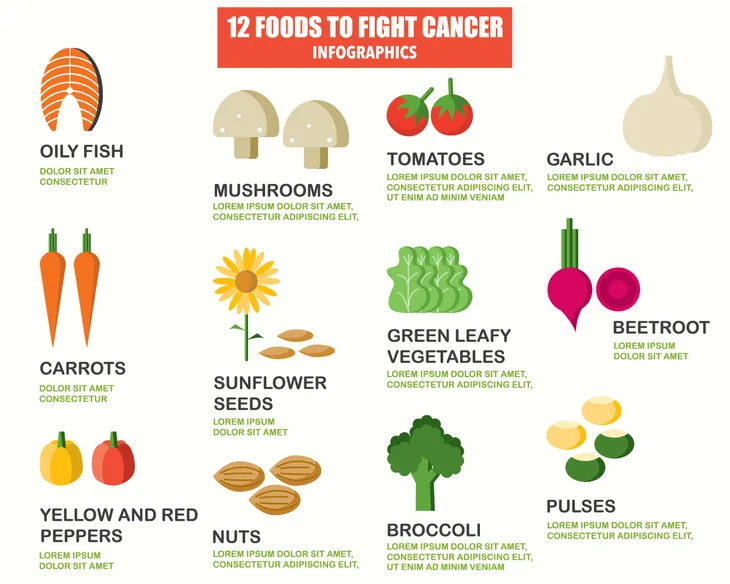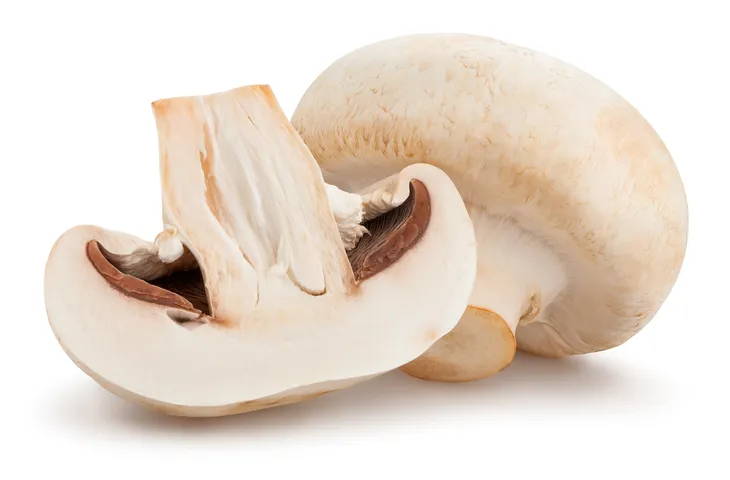Mushrooms are among the most versatile foods in the world, making a valuable addition to a wide range of foods, from pizza and pasta to meat pies, salads, and sandwiches. Much of their appeal is due to their generally mild, neutral flavor and their affordable pricing, with the latter due to the ability to grow them year-round in a variety of climate types.
But there’s more to mushrooms than great taste and affordability. They’re also remarkably good for you, with their consumption helping boost the health of the immune system and major organs, including the heart. So, let’s take a closer look at the health benefits of eating mushrooms.
Heart Helper
With obesity becoming a growing problem in North America, there’s no sign that we’ll soon win the fight against heart disease. Currently, it’s the world’s number-one cause of death; often, it’s the result of problematic life decisions — such as failing to get enough physical exercise or eating unhealthy foods — but it can also result from a family history of heart health issues.
Mushrooms can offer some help, though. Although it’s unlikely that eating mushrooms would be enough to prevent the onset of heart disease, adding more of them to your diet — in addition to making other positive heart-healthy changes — could play a factor in decreasing the chances of developing heart-related health issues. Specifically, research has shown that consuming mushrooms can help fight inflammation, which may help boost the overall functionality of the heart.
Immunity Improvements
There’s no denying the importance of the immune system in protecting our bodies against foreign invaders, like scary viruses, capable of damaging our health on a permanent or temporary basis. That’s why it’s so important to consume foods that help, rather than hinder, the efficacy of our immune system.
Mushrooms are among those foods that can offer assistance. That’s because mushrooms have been shown to help boost the activity of cells responsible for defending our bodies against foreign intrusions. Although researchers continue to investigate how mushrooms assist in this process, current theories indicate it may be their polysaccharide content that’s responsible.
Cancer Fighter
There are few diagnoses more frightening than those involving the word “cancer.” That’s why so many health products openly tout their potential to help fight the risk of developing cancer. But while many of these products come with high prices, few actually have the ability to prevent cancer from taking hold.
Remarkably, mushrooms may be one of the most affordable foods that have the potential to fight cancer. Studies have shown that consuming mushrooms on a regular basis may help prevent and treat several types of cancer, including prostate, breast, and colon cancers — together, some of the most prevalent and deadly forms of the disease. And it doesn’t take much: just half a cup of mushrooms each day may be all that’s required.
Source of Vitamin D
The long, dark nights of winter lead many people struggling with seasonal affective disorder, or SAD, to take vitamin D supplements in order to boost serotonin levels and help compensate for less exposure to sunlight (a major source of vitamin D). But that’s hardly the only way to get enough of this important vitamin.
Eating mushrooms each day is another way to get the recommended amount of vitamin D in your diet. In addition to helping boost your mood and give you a little more energy, vitamin D can help build and maintain healthy bones, making it hugely important for anyone with a family history of arthritis or bone disease.
Copper King
Copper has been used for literally thousands of years to complete important construction projects; today, it’s often the central ingredient in the pipes that line the walls of our homes. But copper isn’t just for tools and plumbing projects — it also plays an important role in helping keep us happy and healthy.
That’s because copper, which is found in high amounts in mushrooms, helps in the production of blood cells, meaning it’s crucial in helping maintain a healthy circulatory system. This also means that copper helps with maintaining overall heart health, which is crucial in a world where heart disease represents the single greatest health threat facing humans.
Lower Cholesterol
One of the first steps in the alarming progression of heart disease is the escalation of cholesterol levels. As these levels rise, they place increased pressure on the heart, often causing damage to the organ and result in ever more serious health issues.
That’s why it’s so important to search out and regularly consume foods that have been shown to effectively reduce cholesterol levels and lower the chances of developing heart-related health problems. Mushrooms fit that bill nicely, as they boast no calories or fat. Beyond that, they also contain fiber and enzymes with a demonstrated capacity to reduce cholesterol levels and alleviate pressure on the heart.
Lean Protein
You’ve probably heard that it’s important to eat foods that contain protein, which can help in the development of muscle and assists in keeping one feeling full for longer (thereby helping them avoid binging on less healthy foods). But you may not know of the importance of consuming lean protein, or protein that is free of fat and can help boost metabolism.
Mushrooms, unlike many fruits and vegetables, actually contain lean protein capable of helping burn cholesterol during the digestive process. Not only does this make mushrooms a great choice for those with heart-health concerns, such as heart attack and stroke, but it also makes them an excellent choice for anyone keen on losing or maintaining body weight.
Attack Anemia
Anemia occurs when the iron in blood reaches levels low enough to result in a variety of health problems, from headaches to exhaustion, digestive concerns, even reduced brain functionality. Although mild cases of anemia can be treated with an iron supplement, some patients must receive more advanced treatment that can include receiving regular iron shots.
Of course, any individual experiencing consistent problems with anemia should make significant changes to their diet in order to consume more foods containing iron. For some, this will mean eating more meat, and particularly red meat like beef. But this isn’t the most health-conscious move and will present obvious problems for anyone who follows a vegan or vegetarian diet. For these individuals, one of the best diet choices will be consuming more mushrooms, as they’re an excellent source of iron. In fact, research shows that the iron found in mushrooms is often more readily broken down and absorbed by the body.
Balance Estrogen Levels
Chances are you’re aware that the dominant hormones in men and women are testosterone and estrogen, respectively. But you may not know that having an excess amount of estrogen in the body can actually present significant health problems to women; in fact, excess estrogen, which typically becomes an issue following menopause, can significantly increase one’s chances of developing breast cancer.
Making dietary changes can help with this problem, however. Specifically, a diet containing a regular supply of mushrooms can help balance estrogen levels. Additionally, mushrooms have been shown to help prevent the formation of tumors when applied in a medicinal capacity and quantity.
Fight Diabetes
There’s no denying that, with more and more North Americans struggling with their weight and obesity, diabetes (and particularly type 2 diabetes) is becoming a progressively more sinister health concern. In addition to requiring substantial changes to one’s diet and lifestyle, diabetes can lead to the emergence of many serious health issues, including heart disease.
That’s why it’s so important to consume foods that can help prevent diabetes and help treat the disease following a diagnosis (should one occur). Because mushrooms contain no fat or cholesterol and very few carbohydrates, they’re considered an ideal food in the effort to prevent or fight diabetes. Additionally, mushrooms contain enzymes capable of helping break down sugars and starches in our food, making carbohydrates less of a threat to diabetics.
Boost Bone Health
Back in the twentieth century, the dairy industry achieved a major accomplishment by convincing millions of Americans that the best way to build calcium levels in the body — and thereby improve the density and overall health of our bones — was to drink milk and consume other dairy products, such as yogurt and cheese. It was a huge boon to companies making these products.
But the truth is that, while getting a sufficient amount of calcium in our diets is very important, dairy is hardly the only way to achieve this goal. In reality, there are many different types of foods, including mushrooms, that contain ample amounts of calcium. Mushrooms are an excellent source of calcium and therefore eating them represents an excellent way to boost bone health and keep bone-related health problems, like arthritis and joint pain, at bay.
Help Absorb Nutrients
We’re constantly told how important it is to consume foods that contain crucial vitamins and minerals, but we don’t often hear about the foods that can actually improve the body’s ability to absorb and make use of those nutrients.
Mushrooms are one of these foods. Because they’re high in vitamin D, which plays an important role in facilitating the absorption of other vitamins and minerals, mushrooms are an excellent dietary choice. Given that mushrooms already contain copper, calcium, and a range of vitamins, this makes them one of the healthiest foods you can eat.















